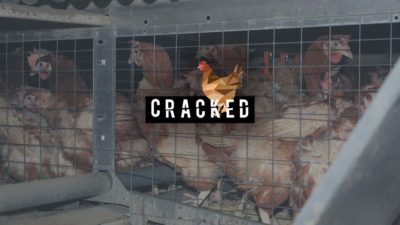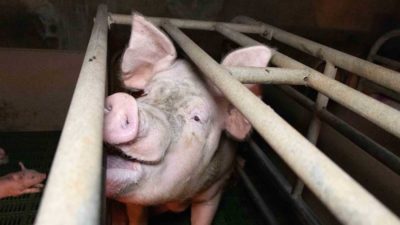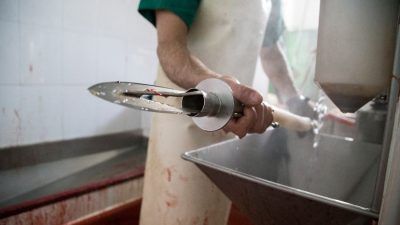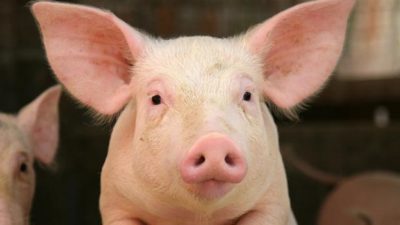Do Vegans Want Farmed Animals to Go Extinct?
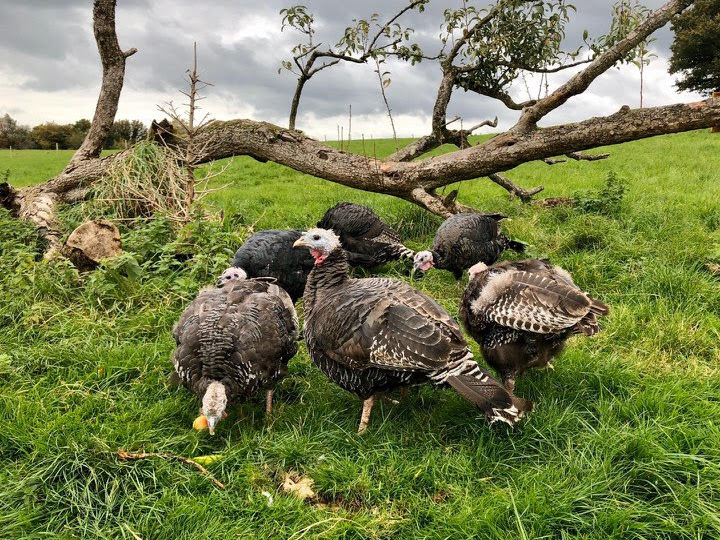
Vegans are asked a lot of questions. “But where do you get your protein?” is perhaps the star of the show, but others, like “So, do you want all farmed animals to go extinct, then?”, form a seemingly innumerable set of supporting acts. After all, given that vegans are often vegan because they love and respect farmed animals as sentient beings, how can a vegan condone their extinction?
As a vegan charity, Viva! is concerned greatly with both animal welfare and the environment, and there is plenty to say from both of these perspectives on the question above.
Animal welfare
Think of pugs.
Pugs are widely known to have problems with breathing and generally very poor health as a result of the terrible selective breeding programs that generations have been forced to endure. There have been suggestions that the breeding of pugs and similar flat-faced dogs should be banned. This would result in the ‘extinction’ of the pug.
This is not the same as saying we should exterminate all pugs. It is simply to say we ought to stop breeding them to do nothing but suffer and be commodified.
In a similar vein, farmed animals have been selectively bred for the last 10,000 years (since the agricultural revolution) to be incredibly unhealthy compared to their wild ancestors.
Farmed cows, for instance, have udders that produce up to 27 litres of milk every day – this is many times more than they would naturally produce, and leads to many health problems, not least mastitis and much difficulty in walking.
Farmed chickens lay typically 120-300 eggs every year for the duration of their economical lives, leading to poor health and calcium deficiencies. Both dairy cows and egg-laying hens are killed when these yields drop. Wild relatives of the chicken only lay 12-14 eggs per year. Human women have a similar number of periods each year.
Broiler chickens and turkeys are bred to grow so fat so quickly that their legs simply snap under their weight. In Viva!’s farm investigations, we have frequently found birds that have starved to death because they are so large they are unable to move towards their food or water sources.
Again, that is not to say that we ought to exterminate these animals; quite the contrary.
Animals should be given good lives, lived to their fullest without being prematurely ended by a needless slaughter. These creatures, produced by years of artificial selection, ought not to be continually bred to be ever bigger or more productive in their millions or billions to live incredibly painful and unhealthy, short lives. If this is tantamount to the ‘extinction’ of chickens the size of footballs and cows with 30 kilogram udders, then so be it.
We should focus instead on having healthy and wild cows and chickens roaming wild in the midst of a vibrant, more natural ecosystem.
The environment
Over two-thirds of the crops in the world are fed to animals. Most of the land we use for agriculture is used for animals. Yet animals provide only a small amount of the actual calories and protein that we humans eat.
If we were all (hypothetically) to transition to a plant-based diet, we would be able to feed the current global population with only a quarter of the land that is currently used for agriculture. That is a huge amount of land that could be freed up and rewilded to forest that would help capture carbon and so combat the climate crisis.
Yes, that might mean that specific breeds of cow, pig, chicken and other farmed animals may go extinct. Perhaps five or 10 species will see their populations fall – even if their wild populations recover. But it would mean that many of the million species of animals (not to mention plants, fungi and other forms of life) that are currently threatened with extinction can be rehomed and brought back from the brink of extinction.
We cannot manufacture more land – we can only use what land we have more wisely. That requires us, first and foremost, to go plant-based. Saving even a small portion of the million species that are endangered by allowing presently-farmed animal breeds to reduce in number – while saving wild breeds of those same animal species – is a no-brainer. Remember, by weight, 60 per cent of mammals on Earth are livestock, 36 per cent are human and only a paltry four per cent are wild.
Cows, chickens, pigs and the like will always have a place in our ecosystems, even if not the current breeds that predominate contemporary agriculture. We urgently need to rethink how we value nature – and that starts with going vegan.

